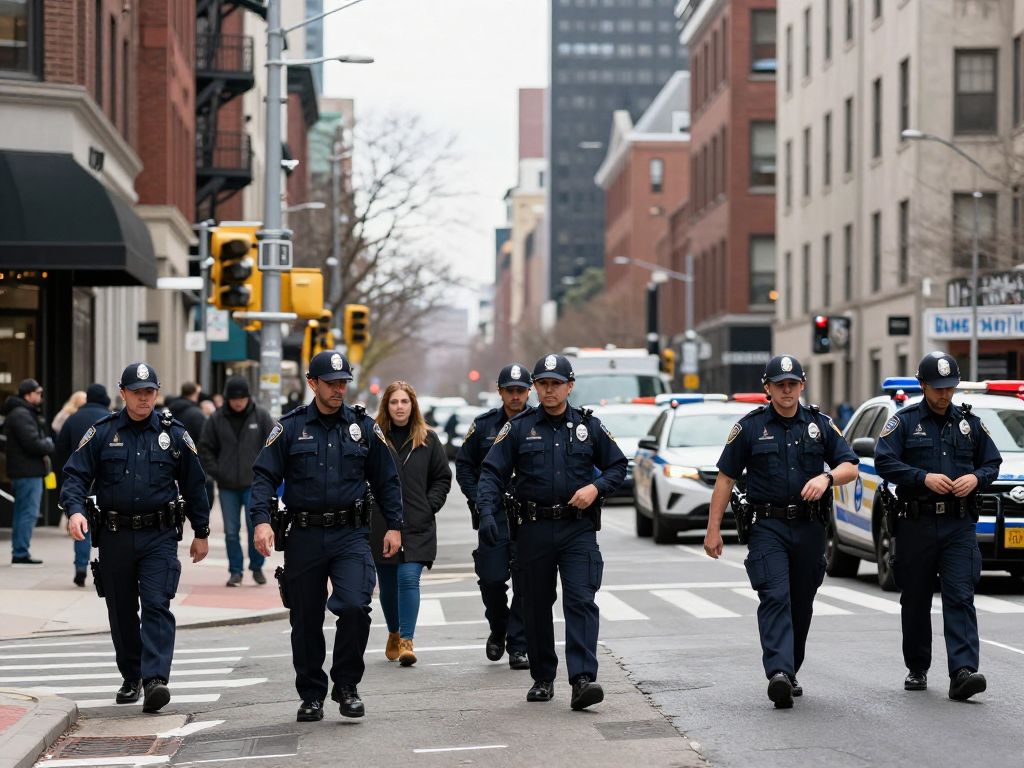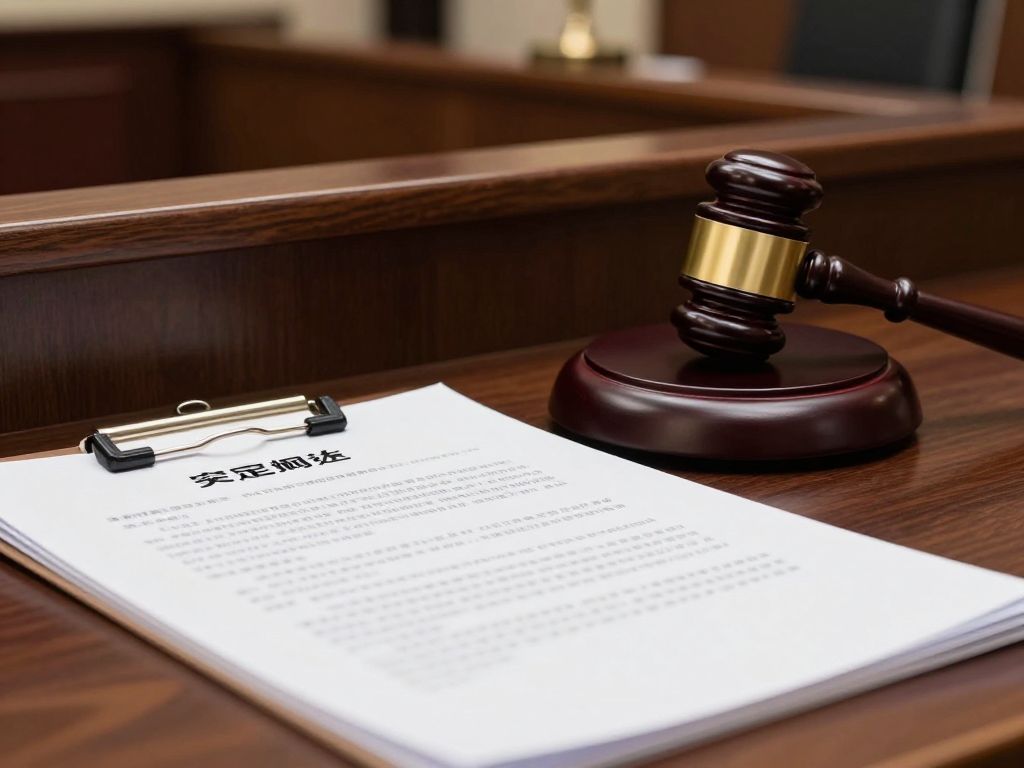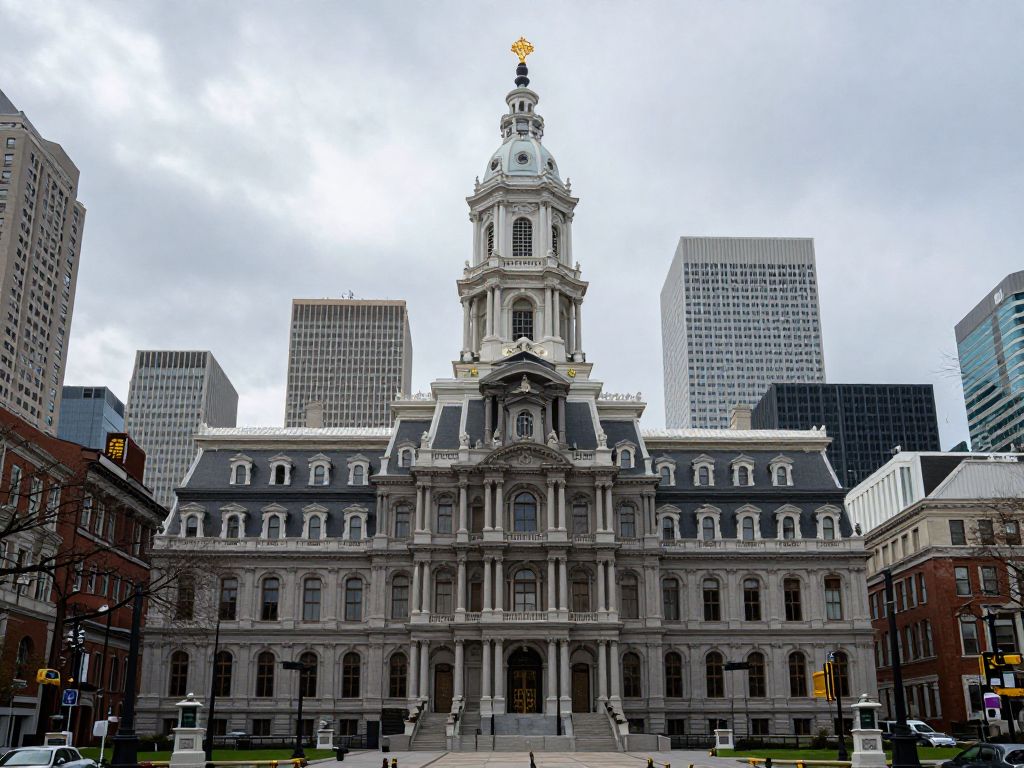Boston, September 24, 2025
News Summary
Late-night host Jimmy Kimmel has been suspended for three shows following escalating tensions between Disney, FCC Chairman, and affiliate owners Nexstar and Sinclair. The regulatory environment has pressurized major station owners to threaten blocking Kimmel’s program, prompting Disney to act swiftly. This situation highlights the growing vulnerabilities of networks due to affiliate control and regulatory concerns while signaling shifts in how late-night programming is perceived by networks in the evolving media landscape.
Boston
Jimmy Kimmel Temporarily Suspended Amid Network, Affiliate and FCC Tensions
Disney suspended late-night host Jimmy Kimmel for three shows after a series of escalations involving federal regulatory pressure and threatened preemptions from major station groups. The action followed public remarks by the FCC chair and subsequent announcements from large affiliate owners that they would consider blocking the program.
The Kimmel suspension came after FCC Chairman’s public threats towards ABC and its affiliates, notably Nexstar and Sinclair. In response to the chairman’s statements, Nexstar and Sinclair announced plans to preempt Kimmel indefinitely after the FCC Chairman’s remarks. Those affiliate threats prompted Disney to take the temporary suspension step while the situation remains unsettled.
Immediate impact and industry context
For the second time this year, late-night television has become a major media news story. The decision to suspend the host was characterized by executives as not entirely a financial calculation but as a response to affiliate control and regulatory risk. Due to its affiliate control, Disney had to suspend Kimmel’s show after threats from Nexstar and Sinclair.
Major station ownership and regulatory rules are central to the dispute. Current FCC regulations prevent a single company from owning TV stations reaching more than 39% of U.S. television homes. Large groups that own many local stations can therefore exert significant leverage over networks that depend on affiliate carriage to reach viewers.
Affiliate power, ownership lobbying and network strategy
Major station owner Nexstar is lobbying to alter the FCC ownership cap. Nexstar and Sinclair together own substantial portions of stations that carry ABC programming, which increases their influence when they threaten preemption. Executives say that affiliate control can make networks vulnerable when affiliates coordinate on carriage decisions.
Bob Iger, CEO of Disney, suggested in summer 2023 that ABC may not be central to Disney’s core business. Those earlier comments have resurfaced amid the current standoff, prompting renewed questions about ABC’s strategic value inside its parent company.
Late-night changes and broader programming shifts
The episode reflects wider shifts in how networks view late-night shows and sports. CBS decided to cancel “The Late Show” instead of handing it over to a new host, indicating a reduced commitment to late-night programming. Networks are reassessing investments in traditional late-night formats even as they balance relationships with local affiliates.
Networks are dependent on sports programming to maintain relevancy in broadcast television. At the same time, major broadcast networks are increasingly moving sports content to streaming services despite availability on traditional broadcast. Sports remain a key driver of live viewership and bargaining power, but the distribution strategy for major properties is shifting.
Sports, streaming and viewer habits
Sports rights and where games appear are central to the networks’ leverage. Fox Sports, for example, airs most of its MLB playoff games on FS1, indicating a shift in strategy from traditional broadcast methods. Meanwhile, insiders discuss the significance of ESPN’s “Sunday Night Baseball” potentially moving from ESPN next season despite no formal announcement.
ABC signage was prominently displayed during a national TV broadcast of a Boston Bruins vs. New York Rangers game on April 23, 2022, at TD Garden in Boston, Massachusetts. This example underscores how network branding still appears in major live sports telecasts even as distribution channels evolve.
The report highlights an evolution in viewer habits changing away from traditional broadcasting toward cable and streaming platforms. Many viewers now follow sports and news through apps and streaming services, reducing reliance on over-the-air affiliates and changing the balance of power between networks and local station groups.
Local market notes and implications
The Boston market’s radio landscape shows the dominance of 98.5 The Sports Hub and significant changes in listener preferences regarding sports talk shows. Local audio and digital outlets are part of the broader ecosystem that shapes how sports content is consumed and monetized in specific markets.
ABC’s decreasing influence is partially due to external forces like affiliate programming and regulatory pressures from the FCC. The standoff between networks, affiliates, and the FCC suggests potential risks for future broadcast sports programming and for how networks approach live content moving forward.
What to watch next
Industry observers will monitor whether affiliates formally preempt additional network programming, whether the FCC’s posture changes, and whether major station owners like Nexstar succeed in lobbying for ownership-rule changes. How networks allocate sports rights between broadcast and streaming platforms will also shape their negotiating leverage with affiliates.
FAQ
Why was Jimmy Kimmel suspended?
Disney suspended late-night host Jimmy Kimmel for three shows.
What triggered the Kimmel suspension?
The Kimmel suspension came after FCC Chairman’s public threats towards ABC and its affiliates, notably Nexstar and Sinclair.
Did any affiliates threaten to preempt the show?
Nexstar and Sinclair announced plans to preempt Kimmel indefinitely after the FCC Chairman’s remarks.
Was the suspension purely a financial decision?
Disney suspended late-night host Jimmy Kimmel for three shows.
Why did Disney feel compelled to suspend the show?
Due to its affiliate control, Disney had to suspend Kimmel’s show after threats from Nexstar and Sinclair.
What are the relevant FCC rules?
Current FCC regulations prevent a single company from owning TV stations reaching more than 39% of U.S. television homes.
Are station owners trying to change those rules?
Major station owner Nexstar is lobbying to alter the FCC ownership cap.
How does this fit into broader network strategy?
Networks are dependent on sports programming to maintain relevancy in broadcast television.
Are networks moving sports to streaming?
Major broadcast networks are increasingly moving sports content to streaming services despite availability on traditional broadcast.
Is ABC losing influence?
ABC’s decreasing influence is partially due to external forces like affiliate programming and regulatory pressures from the FCC.
Are viewer habits changing?
The report highlights an evolution in viewer habits changing away from traditional broadcasting toward cable and streaming platforms.
Any local examples cited in the report?
The Boston market’s radio landscape shows the dominance of 98.5 The Sports Hub and significant changes in listener preferences regarding sports talk shows.
Any examples of sports distribution changes?
Fox Sports, for example, airs most of its MLB playoff games on FS1, indicating a shift in strategy from traditional broadcast methods.
Any notable comments from Disney leadership?
Bob Iger, CEO of Disney, suggested in summer 2023 that ABC may not be central to Disney’s core business.
Is there an example of ABC branding at a sporting event?
ABC signage was prominently displayed during a national TV broadcast of a Boston Bruins vs. New York Rangers game on April 23, 2022, at TD Garden in Boston, Massachusetts.
Was late-night already a focus this year?
For the second time this year, late-night television has become a major media news story.
{
“@context”: “https://schema.org”,
“@type”: “FAQPage”,
“mainEntity”: [
{
“@type”: “Question”,
“name”: “Why was Jimmy Kimmel suspended?”,
“acceptedAnswer”: {
“@type”: “Answer”,
“text”: “Disney suspended late-night host Jimmy Kimmel for three shows.”
}
},
{
“@type”: “Question”,
“name”: “What triggered the Kimmel suspension?”,
“acceptedAnswer”: {
“@type”: “Answer”,
“text”: “The Kimmel suspension came after FCC Chairman’s public threats towards ABC and its affiliates, notably Nexstar and Sinclair.”
}
},
{
“@type”: “Question”,
“name”: “Did any affiliates threaten to preempt the show?”,
“acceptedAnswer”: {
“@type”: “Answer”,
“text”: “Nexstar and Sinclair announced plans to preempt Kimmel indefinitely after the FCC Chairman’s remarks.”
}
},
{
“@type”: “Question”,
“name”: “Was the suspension purely a financial decision?”,
“acceptedAnswer”: {
“@type”: “Answer”,
“text”: “Disney suspended late-night host Jimmy Kimmel for three shows.”
}
},
{
“@type”: “Question”,
“name”: “Why did Disney feel compelled to suspend the show?”,
“acceptedAnswer”: {
“@type”: “Answer”,
“text”: “Due to its affiliate control, Disney had to suspend Kimmel’s show after threats from Nexstar and Sinclair.”
}
},
{
“@type”: “Question”,
“name”: “What are the relevant FCC rules?”,
“acceptedAnswer”: {
“@type”: “Answer”,
“text”: “Current FCC regulations prevent a single company from owning TV stations reaching more than 39% of U.S. television homes.”
}
},
{
“@type”: “Question”,
“name”: “Are station owners trying to change those rules?”,
“acceptedAnswer”: {
“@type”: “Answer”,
“text”: “Major station owner Nexstar is lobbying to alter the FCC ownership cap.”
}
},
{
“@type”: “Question”,
“name”: “How does this fit into broader network strategy?”,
“acceptedAnswer”: {
“@type”: “Answer”,
“text”: “Networks are dependent on sports programming to maintain relevancy in broadcast television.”
}
},
{
“@type”: “Question”,
“name”: “Are networks moving sports to streaming?”,
“acceptedAnswer”: {
“@type”: “Answer”,
“text”: “Major broadcast networks are increasingly moving sports content to streaming services despite availability on traditional broadcast.”
}
},
{
“@type”: “Question”,
“name”: “Is ABC losing influence?”,
“acceptedAnswer”: {
“@type”: “Answer”,
“text”: “ABC’s decreasing influence is partially due to external forces like affiliate programming and regulatory pressures from the FCC.”
}
},
{
“@type”: “Question”,
“name”: “Are viewer habits changing?”,
“acceptedAnswer”: {
“@type”: “Answer”,
“text”: “The report highlights an evolution in viewer habits changing away from traditional broadcasting toward cable and streaming platforms.”
}
},
{
“@type”: “Question”,
“name”: “Any local examples cited in the report?”,
“acceptedAnswer”: {
“@type”: “Answer”,
“text”: “The Boston market’s radio landscape shows the dominance of 98.5 The Sports Hub and significant changes in listener preferences regarding sports talk shows.”
}
},
{
“@type”: “Question”,
“name”: “Any examples of sports distribution changes?”,
“acceptedAnswer”: {
“@type”: “Answer”,
“text”: “Fox Sports, for example, airs most of its MLB playoff games on FS1, indicating a shift in strategy from traditional broadcast methods.”
}
},
{
“@type”: “Question”,
“name”: “Any notable comments from Disney leadership?”,
“acceptedAnswer”: {
“@type”: “Answer”,
“text”: “Bob Iger, CEO of Disney, suggested in summer 2023 that ABC may not be central to Disney’s core business.”
}
},
{
“@type”: “Question”,
“name”: “Is there an example of ABC branding at a sporting event?”,
“acceptedAnswer”: {
“@type”: “Answer”,
“text”: “ABC signage was prominently displayed during a national TV broadcast of a Boston Bruins vs. New York Rangers game on April 23, 2022, at TD Garden in Boston, Massachusetts.”
}
},
{
“@type”: “Question”,
“name”: “Was late-night already a focus this year?”,
“acceptedAnswer”: {
“@type”: “Answer”,
“text”: “For the second time this year, late-night television has become a major media news story.”
}
}
]
}
Quick Reference Table
| Item | Fact |
|---|---|
| Action taken | Disney suspended late-night host Jimmy Kimmel for three shows |
| Trigger | The Kimmel suspension came after FCC Chairman’s public threats towards ABC and its affiliates, notably Nexstar and Sinclair |
| Affiliate response | Nexstar and Sinclair announced plans to preempt Kimmel indefinitely after the FCC Chairman’s remarks |
| Regulatory limit | Current FCC regulations prevent a single company from owning TV stations reaching more than 39% of U.S. television homes |
| Ownership lobbying | Major station owner Nexstar is lobbying to alter the FCC ownership cap |
| Network strategy note | CBS decided to cancel “The Late Show” instead of handing it over to a new host, indicating a reduced commitment to late-night programming |
| Sports distribution example | Fox Sports, for example, airs most of its MLB playoff games on FS1, indicating a shift in strategy from traditional broadcast methods |
| Local example | ABC signage was prominently displayed during a national TV broadcast of a Boston Bruins vs. New York Rangers game on April 23, 2022, at TD Garden in Boston, Massachusetts |
Deeper Dive: News & Info About This Topic
HERE Resources
Boston 25 Now Marks Significant Transition Milestone
Additional Resources
- NBC Sports Boston: All-Female Broadcast for Celtics vs. Nets
- Boston.com: The Sports Hub Dominates Nielsen Winter Ratings
- CLNS Media: Greg Bedard on Boston Sports Radio
- MassLive: Boston Radio Host Airlifted to Hospital
- Wikipedia: Boston

Author: STAFF HERE BOSTON WRITER
The BOSTON STAFF WRITER represents the experienced team at HEREBoston.com, your go-to source for actionable local news and information in Boston, Suffolk County, and beyond. Specializing in "news you can use," we cover essential topics like product reviews for personal and business needs, local business directories, politics, real estate trends, neighborhood insights, and state news affecting the area—with deep expertise drawn from years of dedicated reporting and strong community input, including local press releases and business updates. We deliver top reporting on high-value events such as Boston Marathon, Head of the Charles Regatta, and Boston Harborfest. Our coverage extends to key organizations like the Greater Boston Chamber of Commerce and Associated Industries of Massachusetts, plus leading businesses in finance, biotech, and insurance that power the local economy such as Fidelity Investments, Biogen, and Liberty Mutual Insurance. As part of the broader HERE network, we provide comprehensive, credible insights into Massachusetts's dynamic landscape.





